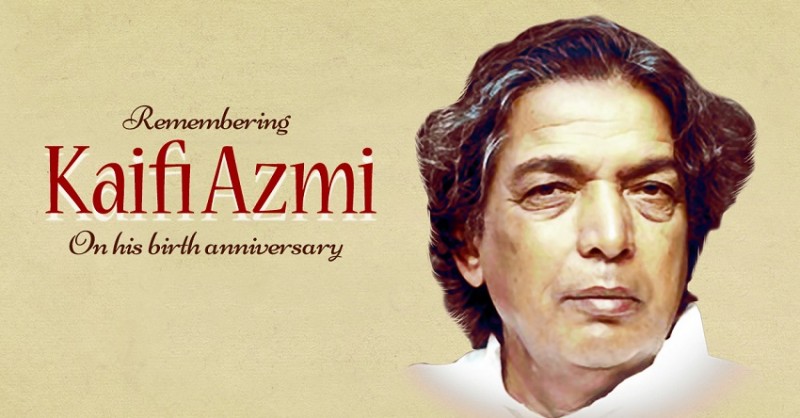
As we mark the 22nd anniversary of the passing of Athar Husain Rizvi, fondly known as Kaifi Azmi, it's a poignant moment to reflect on the life and works of this legendary Indian Urdu poet. Kaifi Azmi was not just a poet; he was a revolutionary, a contrarian who challenged societal norms, and a prolific lyricist and screenwriter who left an indelible mark on Hindi cinema.
Born on 14th January 1919 in the quaint village of Mijwan in Uttar Pradesh, Azmi was nurtured in a family steeped in literary tradition. From a young age, his flair for language and innate talent for writing shone brightly.
At the tender age of 11, Azmi was handed a challenge by his father: to compose a ghazal. Rising to the occasion, he penned his first ghazal, 'Bahraich Itna To Zindagi Mein Kisi Ki Khalal Pade,' which swiftly captured the hearts of pre-partition India and was immortalized by the legendary ghazal singer Begum Akhtar.
Embracing the cause of social justice, Azmi embarked on a journey that led him to the bustling textile mill areas of Kanpur and later to the bustling city of Mumbai. It was here that his conscience was stirred by the pervasive caste and religious discrimination. In 1936, he found solace in the tenets of communism, eventually becoming a dedicated Marxist in 1942.
Joining the Communist Party of India in 1943, Azmi assumed the mantle of editing the Urdu journal, Mazdoor Mohalla, in Mumbai. Simultaneously, he became an integral part of the Progressive Writers’ Movement, spearheaded by Sajjad Zaheer. Determined to wield his pen for societal good, Azmi endeavored to disseminate profound messages through his writings.
Amidst the bustling streets of Mumbai, Azmi encountered Shaukat, a woman from a privileged background, with whom he fell deeply in love. Their shared passion for culture and intellect forged a bond that culminated in marriage in May 1947. Together, they were blessed with two children, Baba Azmi and Shabana Azmi, both of whom would inherit their parents' creative legacy.
Azmi's contributions to cinema were also noteworthy. His screenplay and dialogues for the film "Garm Hava" earned him both the National Award and the Filmfare Award in 1975, cementing his reputation as a luminary in the film industry.
In 1993, Azmi established the Mijwan Welfare Society, dedicated to the empowerment of girl children and women in rural India, thereby cementing his commitment to social welfare.
On 10th May 2002, the world bid farewell to this invaluable gem, but his words continue to resonate, reminding us of the enduring power of art to provoke thought and inspire change. As we commemorate Kaifi Azmi's death anniversary, let us not only remember his beautiful creations but also strive to uphold the ideals he fervently believed in.
Celebrating the Legacy of Maharana Pratap: A Tale of Bravery and Resilience
Rabindranath Tagore Jayanti 2024: PM Modi Honors ‘the Bard of Bengal’ on Birth Anniversary